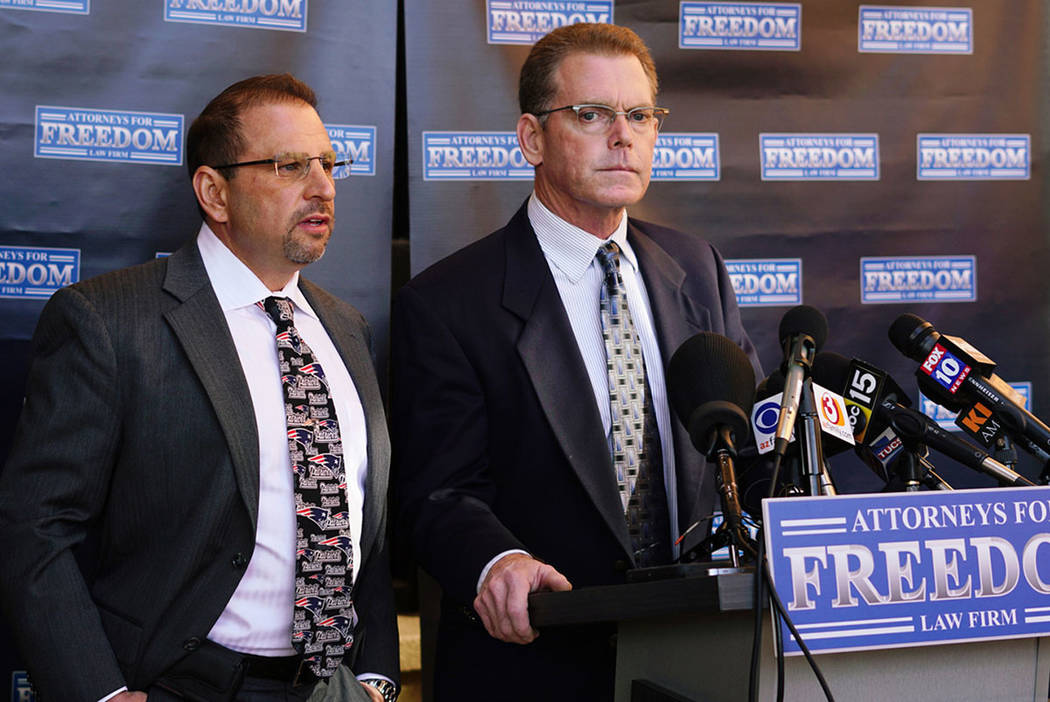Case will proceed against man who sold ammo to Las Vegas gunman
A federal case will move forward against the Arizona man accused of selling reloaded, armor-piercing ammunition to the gunman before the mass shooting in Las Vegas, a judge in Nevada ruled this week.
Douglas Haig filed a motion in January to dismiss the criminal case. He was charged last year with engaging in the business of manufacturing ammunition without a license, which stemmed from his sales to gunman Stephen Paddock.
In the motion for dismissal, Haig’s attorney argued that the federal definition of “manufacturing” was “unconstitutionally vague” and that reloading ammunition did not necessarily fall under it.
“The statute criminalizes engaging in the business of manufacturing ammunition without a license but what conduct constitutes ‘manufacturing’ is not defined,” the filing reads.
Prosecutors contended in response that Haig’s request to dismiss the case was irrelevant because “he assumes that reloading cartridges is the only conduct of manufacturing ammunition that the government intends to prove,” according to court records.
Regardless, they cited a separate federal case that applied a dictionary definition of “manufacture,” which means “to make into a product suitable for use.” The same definition listed related words: assemble, build, construct, refashion and remake.
In their reply, Haig’s attorneys dug their heels in, comparing reloading ammunition to assembling an IKEA table.
“If the undefined term ‘manufacture’ is not sufficiently clear to provide guidance to citizens about whether they are manufacturing an IKEA table, it is not clear how citizens can ensure they are not manufacturing ammunition,” the filing continued.
The arguments continued in court filings over the course of three months, until U.S. District Judge James Mahan on Wednesday announced that the motion to dismiss was denied and that the case would move forward.
In his explanation, Mahan adopted the dictionary definition of “manufacture” and ruled that reloading ammunition fell under it. He also noted that the Bureau of Alcohol, Tobacco, Firearms and Explosives on its website explains that a person who reloads ammunition in the course of business must have a license as a manufacturer.
“These public resources are sufficient to put Haig on notice whether his conduct was unlawful,” Mahan wrote. “Indeed, it appears Haig received actual notice as his LinkedIn profile states that he manufactures ammunition.”
The Route 91 Harvest festival attack on Oct. 1, 2017, killed 58 concertgoers and injured hundreds more. Paddock opened fire on the crowd from a Mandalay Bay suite across the street before fatally shooting himself.
Inside the suite, investigators found ammunition that Haig sold to Paddock loaded into five rifles, one magazine and inside an Amazon shipping box that listed Haig’s address.
Federal investigators interviewed Haig shortly after the attack, and prosecutors later charged him in connection with the sales. A trial is set to start in August.
Contact Rachel Crosby at rcrosby@reviewjournal.com or 702-477-3801. Follow @rachelacrosby on Twitter.


















